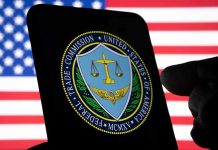
-
Deepfakes are becoming more prevalent.
-
The AI technology can be used to harm people and disrupt elections.
-
Experts are calling on lawmakers to take action against the harmful technology.
-
There are already examples of alleged deepfakes causing problems.
(NewsReady.com) – Artificial intelligence (AI) has grown by leaps and bounds over the last several years. One of the areas that has improved is deepfake technology. That has many industries concerned about the future, and experts are calling for it to be banned.
What Is Deepfake Technology?
Deepfake technology is a type of AI that creates audio, images, and videos that appear and sound real. It’s often used by pulling together a number of images and audio clips to create something that makes a listener or video believe it’s the real deal.
In 2017, researchers at the University of Washington created a deepfake version of former President Barack Obama to demonstrate how the technology worked. The video the university shared was incredibly convincing. A reasonable person who was not aware that the video was AI-generated would have thought it was real.
In the years since, the technology has only gotten better, creating a major concern for experts.
Experts Want It Banned
On February 21, approximately 300 experts across multiple fields signed an open letter calling on lawmakers and governments to ban deepfake content. It explained that deepfakes are not consensual and often contain “sexual imagery, fraud, or political disinformation.” This is especially concerning as US voters get ready to head to the polls in November to elect their next president.
The experts called on lawmakers to pass legislation that does three things:
- Require software distributors and developers to prohibit their products from being used in the creation of deepfakes. Hold them accountable if the preventative measures they put in place are not enough to stop the products from being used.
- Criminalize the use of deepfake child pornography, even if the children in the videos and pictures are not real.
- Create criminal penalties for anyone who knowingly spreads harmful deepfakes.
The experts stated that lawmakers should be able to craft laws that won’t be too burdensome but will “nurture socially responsible businesses.”
Already Causing Problems
Roger Stone, a political advisor to former President Donald Trump, has accused the media of sharing deepfakes of him twice. In 2022, CNN reportedly aired footage the network said was captured by filmmakers Frederik Marbell and Christoffer Guldbrandsen showing Stone speaking the day before the 2020 election. Stone allegedly says, “[Expletive] the voting, let’s get right to the violence.” He goes on to say, “Shoot to kill. See an antifa? Shoot to kill.”
In an incident earlier this year, the media reported Stone was captured on audio recording allegedly threatening to kill two Democratic congressmen. The political operative also said that was a deepfake recording.
Stone never proved the videos were fake, but the allegation was there. And because deepfakes are so good and so prevalent, it’s a he-said-she-said situation. The allegations against the Trump advisor show just how easily technology could be used to disrupt an election cycle. Imagine a video spreading that showed President Joe Biden or Trump calling for the assassination of the other.
The question now is whether lawmakers will take action.
Copyright 2024, NewsReady.com




















